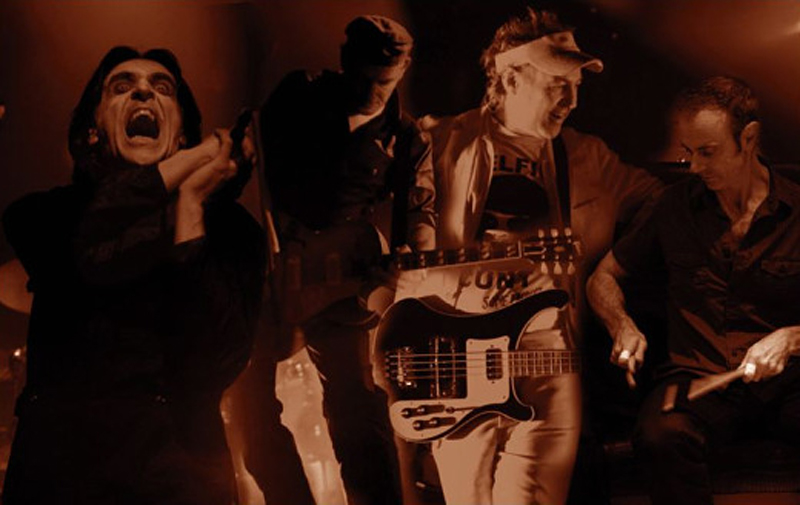So I got out of a matinee showing of Control, the Ian Curtis bio-pic, a short while ago. I’m the type of person who efforts not read any reviews, essays, discussions, etc. of a movie before I go see it, so as not to ruin even the smallest details and/or surprises — even with a movie like Control where I obviously knew the ending (although not how it was rendered). So now I’m catching up on/skimming things that have been written about the flick in recent weeks. So forgive me if the following quick thoughts stumble across well-covered ground.I agree that it was artfully, deftly filmed, with strikingly composed scenes that lingered on details and played with light and shadow in a way only a photographer — particularly one so adept at black-and-white work — can accomplish. I also agree, to a certain degree, that Curtis, as he was portrayed, came off as a coward and, often, a cad: He steals his friend’s girlfriend literally behind his back, then wrongs her persistently and repeatedly throughout their marriage, and essentially shows contempt for their child — seemingly the unwanted product of a loveless union, even though Curtis was the one who suggested they have a baby. At the same time, however, I completely empathized with his extreme depression and other mental/neurological illnesses, and how that seemed to dictate his desperate need for others to love him and want him, even as he pushed them away or wouldn’t let them in — his wife, his bandmates, Anikk, his fans, etc. (borderline personality disorder, perhaps?). I suppose I didn’t see him as villainous, per se — selfish, self-possessed, certainly, but in the way that most mentally ill people are, and I really saw the movie as a treatise on extreme depression that just so happened to briefly coincide with artistic genius. I found myself sympathizing with him, and appreciating the artistic portrayal of him not as an angel or devil, but as a complex human being who — like most people in the world — wasn’t entirely noble or holy or shitty or cruel, and who surrendered to his deepest needs, and who never stood a chance against his demons.I also couldn’t help but think of the old quote, “History is written by the victors,” although that’s not quite right or fair, as I can’t really view widow Debbie Curtis — whose 1996 memoir Touching From a Distance formed the basis of the film; she was also a co-producer — as a “victor” in any of this. Although she does seem to have gotten the definitive say about Ian’s life, character, and personality, and has created the reality that we’ll all have of the singer for the time being. I suppose a film with more input from Annik Honore, the other members of Joy Division (I found the love/hate relationship between Curtis and Bernard Sumner fascinating, and yet not deeply enough explored, in Control), and other friends and family members would have meant an even more layered and accurate portrayal of the man. But for now, Control will certainly do.Okay, enough rambling.
More Stories From This Author
Capitol Hill Block Party Artist Panel Series 2019
The Capitol Hill Block Party Artist Panel Series 2019 is free (no festival wristband required), all-ages, and takes place from…
By
Seattle Weekly • July 9, 2019 11:10 am
Golden Idols will release new EP
Seattle quartet returns with ‘Uneasy’
By
Seattle Weekly • June 24, 2019 5:30 pm
Travis Thompson, Wolf Parade headline Fisherman’s Village fest
The Everett Music Initiative festival, May 16-18 in Everett, will showcase more than 50 acts.
By
Evan Thompson • March 18, 2019 12:00 pm







